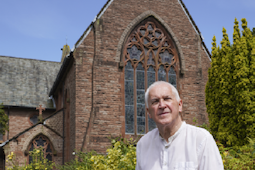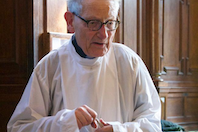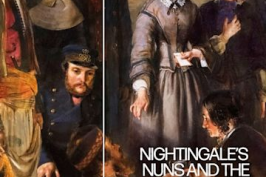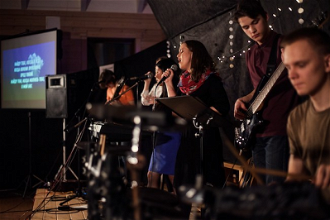Sunday Reflection with Fr Terry Tastard - 27 June 2010
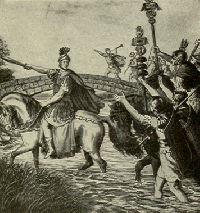
Caesar crossing the Rubicon
There are all kinds of expressions that we use to indicate a fundamental and irrevocable choice. We say of people that they burned their bridges (or their boats). They nailed their colours to the mast, or crossed the Rubicon. These and other expressions tell us that there are times in life when there will be no going back. There are times when life will ask of us a resolute commitment, even if it combines both courage and fear.
In our first reading (1 Kings 19.16, 19-21) and our gospel (Luke 9.51-62) we hear of such moments. Elijah was a prophet in the kingdom of Israel in the ninth century BC. He sought a successor, and he called Elisha. It was not easy being a prophet: you had to speak the truth. Sometimes you had to speak the truth to people in power. Sometimes you had to contradict popular opinion. It was a lonely vocation. Elisha hesitates for a moment; Elijah presses him for a decision. Notice what Elisha does in his response. He slaughters the oxen that pull his plough, then burns his plough. He has literally destroyed his means of livelihood. He will no longer be able to earn his living as a farmer. It was a dramatic statement of his intention to follow the call of Elijah to succeed him, and to strive to live as a prophet and servant of God.
In the gospel, the theme of commitment begins with the gospel telling us that Jesus resolutely took the road for Jerusalem. We are to understand that this was a conscious choice, reflecting his determination to see his vocation through to the end. He must move away from the safety of his native Galilee to the big city. He will be going to a place of intrigue, of power and of the mob. The message of God must be preached there too. Jesus knows this is a dangerous step, and this is a hinge moment in the gospel according to Luke. From this moment onwards the focus in Luke shifts from Galilee towards Jerusalem. More and more the thoughts and words of Jesus turn to the ordeal that lies ahead. This is why we get three little glimpses of the inner resilience that Christians will need if they are to be his disciples. Men come up to him and pledge their allegiance. Jesus asks them: Do you have what it takes? It is clear from what Jesus says that there will be a cost to following him. There is a challenge for us in all this. So often people approach the Church asking what it can do for them. But part of the reason for the Church's existence is to ask people what they can do for love of God.
The inner strength and commitment that Jesus is commending will need to be balanced by gentler characteristics such as compassion, mercy, peace-making and goodwill. When a Samaritan village turns away Jesus and his band of brothers, the disciples want to see the place destroyed. Jesus rebukes them. Ancient hatreds and the nursing of grudges have no place in the kingdom of God. No wonder St Paul tells the Church in Galatia that people must stop snapping at each other and tearing each other to pieces (5.15). It tells us that such behaviour could be found among those first Christians. They were no different to us in their human frailties. Paul reminds them and us that everything can be summed up in the commandment: Love your neighbour as yourself.
Fr Terry is Parish Priest at Holy Trinity Catholic Church in Brook Green, west London. His new book: Ronald Knox and English Catholicism is published by Gracewing at £12.99 and is available on Amazon, on ICN's front page. To read Sr Gemma Simmonds' review on ICN see: www.indcatholicnews.com/news.php?viewStory=16114



